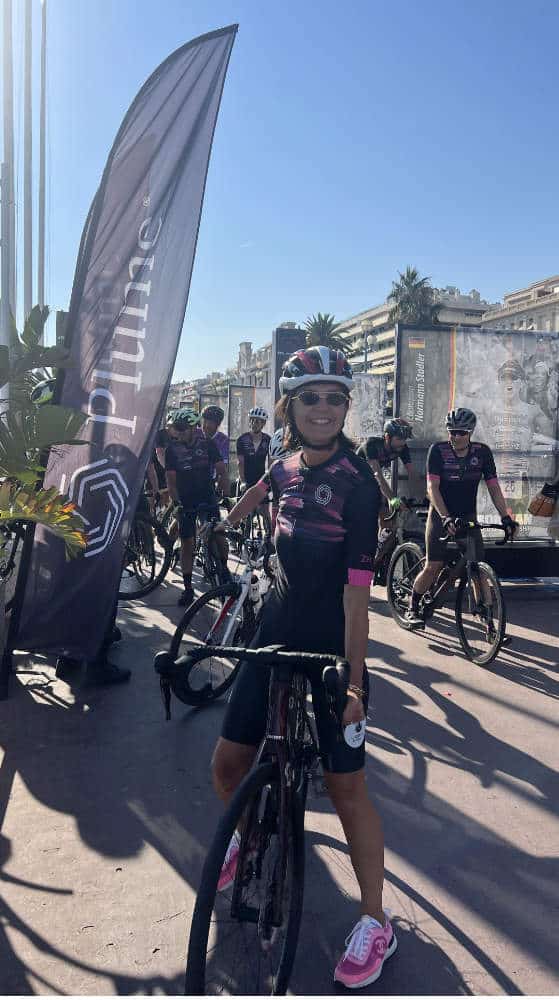What Happens When an Organization Commits to Corporate Social Responsibility

Photo credit: iStockphoto.com (Tetiana Lazunova)

We are a society that both supports corporate social responsibility and has some skepticism about it. However, Plume Design, Inc. has demonstrated how to launch initiatives that involve and excite entire teams, and that can bring concrete benefits beyond their community.
Jasna Mihelj Coustaury, General Manager of European Operations for Plume Design, Inc., in Slovenia joined us recently to share their story.
Q: #PlumeStrong, your corporate social responsibility initiative, started during COVID. Would you tell that story?
When the pandemic started, we were all afraid of what would happen to us because we were suddenly locked in our homes. We could not see each other, and we were just using Zoom. Our CEO encouraged all our employees to start doing activities, and we paid for a subscription to Strava, an app that tracks different activities. You can establish a club, and then I can see what my colleagues are doing. I can join them, give them kudos, encourage them, and so on.
So, our employees were pleased about this initiative, and many started running and biking. Out of this, we established #PlumeStrong, and we said that the people who do most of the steps and spend the most hours on bikes will get a special award.
And then we got plenty of good cyclists out of this initiative. And we said, “Okay, why don’t we do this a bit bigger, and we do fundraising?” And we did our first cycling event in 2021. We raised more than $80,000, bought bicycles for kids from underprivileged families, and started to support the Ron Brown Scholar Program.
Q: What lessons have you learned from advocating for health and wellness that helped build workplace trust so people take advantage?
Every year, our company has a month of mental health awareness. During that month, we talked openly about the issues because this is still a taboo topic, and we also offered different psychologist consultations and workshops. Talking openly helps, and I think, slowly, you will see the results.
Q: You built a school as part of this effort. Could you share that story?
There was an earthquake in Turkey last February. Immediately after the earthquake, when we saw these horrible pictures, we realized that this area was pretty poor even before the earthquake.

So we bought food and sleeping bags and sent them through the Turkish Embassy. Our CEO flew down with a plane full of baby formula and sleeping bags, delivered them in person, and helped people distribute food.
Then, we decided to build a school with the funds we collected from our cycling challenge. So, we went to Turkey at the end of last summer. They gave us the land where we could build the school, and we are just now finishing all the plans and getting all the permits to build 16 classrooms in our high school.
I went there, and people still live in prefabricated camps. I would not call them homes; they are families sharing small places. Kids are going again to these prefabricated schools. They have no real place to learn or study. There is a lot of violence, and people are starting to live in this area because they don’t see the future.
If we can give the kids some knowledge, especially after-school activities and programming skills, they will have knowledge that will allow them to work there, earn money to support the family and stay in the region.
Q: There’s a growing recognition of how important corporate social responsibility is. And there’s also, in some places, cynicism about that, and people think it’s a lot of talk, right? Building a school is not “a lot of talk.” What do you think helps CSR efforts succeed like this?
The most important thing is to be very transparent about where and what the money is used for and get your partners’ trust that you will use this money as you promised and in a way that will make some change.
You also need to build this kind of culture in the company. As our CEO would say, we want to be not only a successful company but also a good company.
And this is, for me, one of the most important values of our company. Of course, we need to look for profit. We are not a charity organization. But we also need to give something to society.
Q: I’m touched by this story. This is amazing, and you’re amazing. Thank you.
We appreciate you listening because we want to become something bigger, do more, change more lives, and give more kids opportunities to get their education. This is why this year’s goal is to raise more than $1.2 million, which is a lot for a small company like ours. But this will enable us to build more schools, bring more small children back to school, and educate them.
